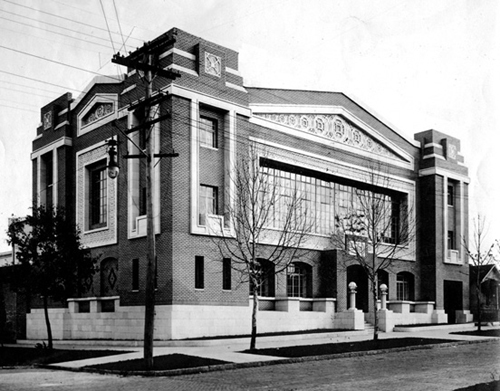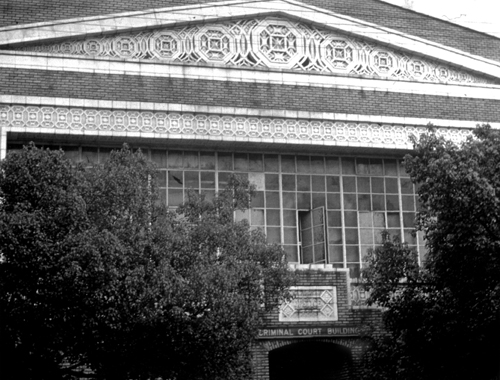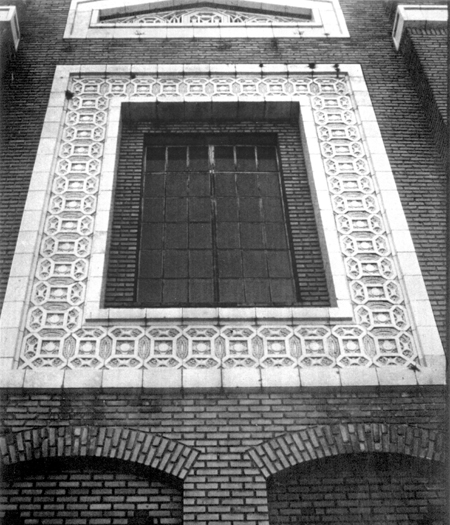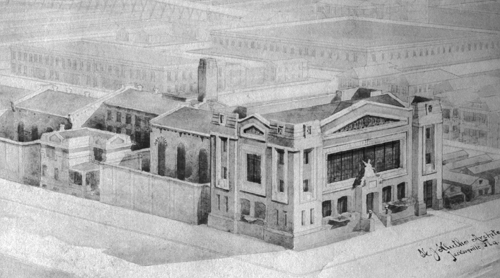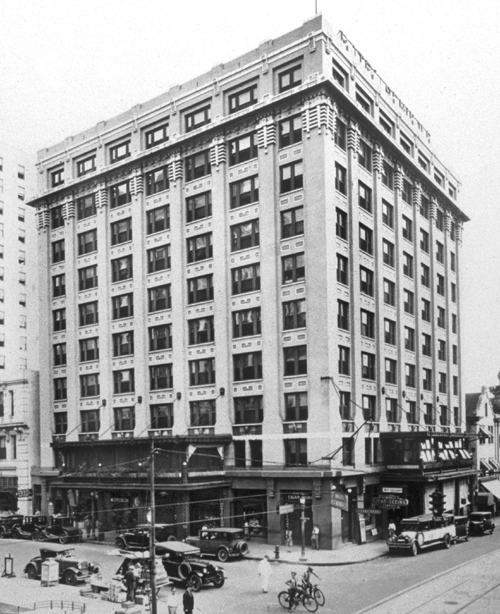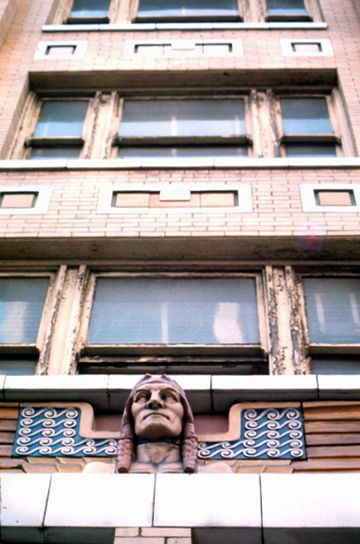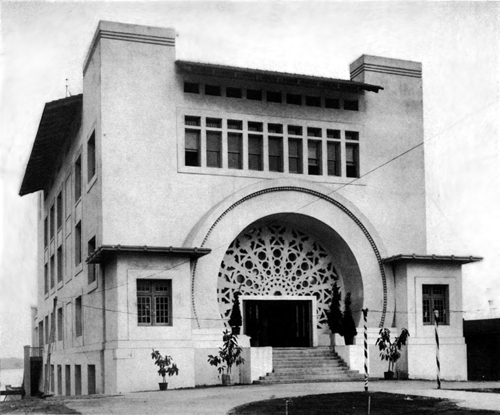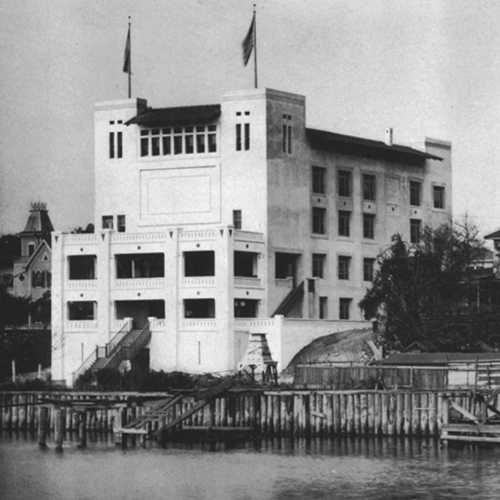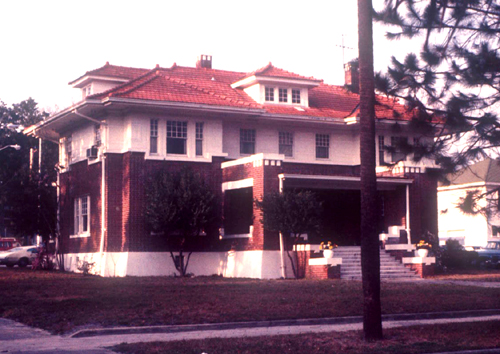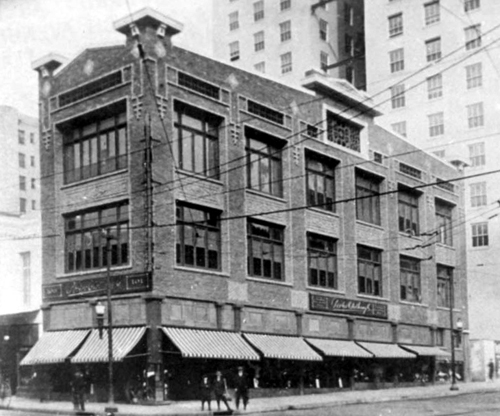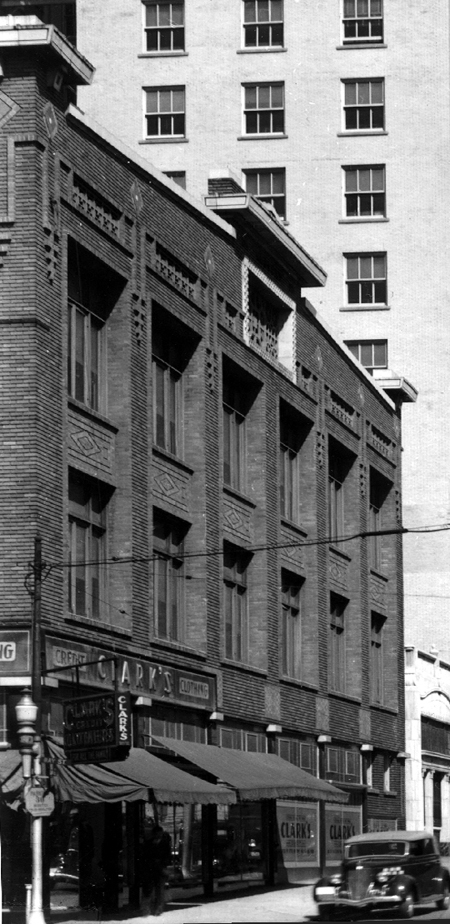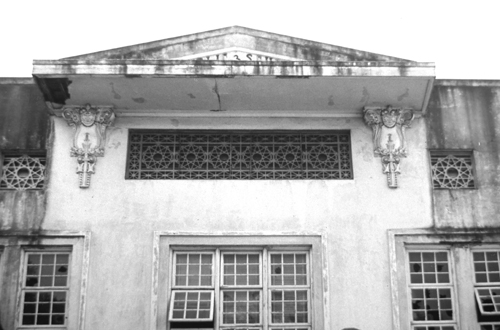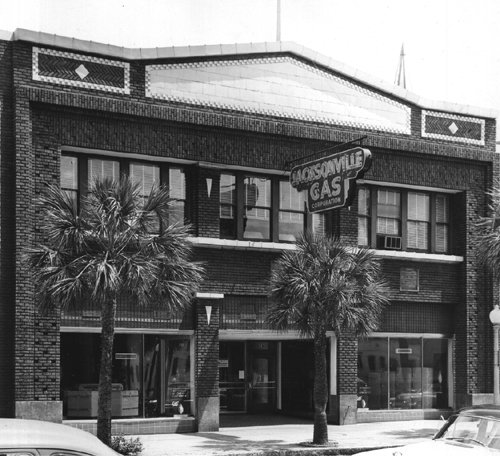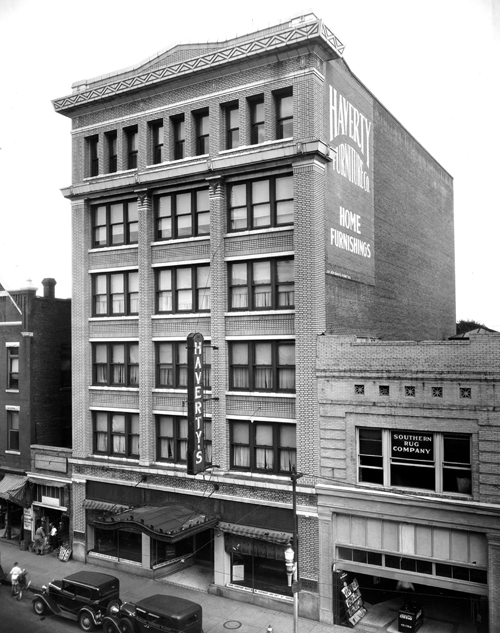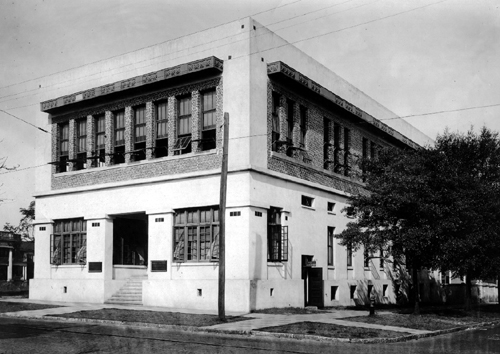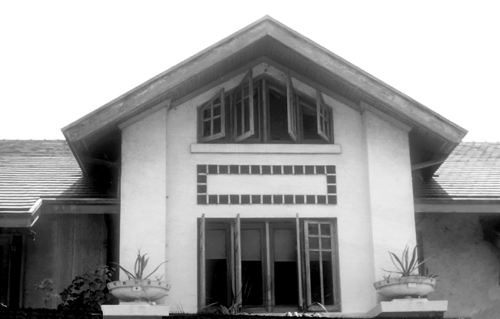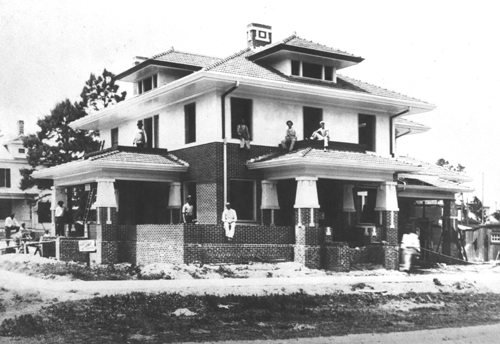 |
|
Jacksonville’s Lost Treasures by Wayne W. Wood
The city of Jacksonville has more examples of the Prairie School than any city outside the Midwest. It has also lost more great Prairie style buildings than any other city, with perhaps the exception of Chicago. Below are a few examples of the wonderful works of architectural art that have been lost by a city that still does not fully appreciate the treasures that it possesses.
It is because of one man, Henry John Klutho. Klutho was a 28-year old New York architect who read in the New York Times that Jacksonville had been almost completely destroyed in a cataclysmic fire on 3 May 1901. Within two months, he had moved to this Florida city and was designing its new buildings. It is a rare opportunity for a city, as well as an architect, to get to start from scratch, to begin with an empty canvas. Builders and investors came from all over the nation to get a piece of the action in rebuilding Jacksonville. Only five months after the fire, 1,000 building permits had already been issued. This new city rising from the ashes had the chance to become one of the most thoroughly modern cities in America. Klutho's artistic skill and business acumen set him apart from the other new arrivals. In short order, he had the commissions for the first tall business building, the new city hall, the library, the Board of Trade building, churches, and many of the large residences of the city’s business leaders. His earliest buildings in Jacksonville were neoclassically inspired, in line with his Beaux-Arts training. Klutho was on his honeymoon in Niagara Falls, New York, when he met Frank Lloyd Wright in nearby Buffalo, where two of Wright’s greatest commissions were underway: the Darwin W. Martin house and the Larkin Building. Klutho returned to Jacksonville with a new vision for the city and for himself. He quickly absorbed the concepts and the aesthetic of Sullivan, Wright, and their followers, and he took up the cause of this radical movement in American architecture, now called the Prairie School. He saw his role as a pioneer of modern architecture. Klutho's legacy in Florida provides new evidence of the vitality and the far-reaching influence of the Prairie School in America.
Photos courtesy of Robert C. Broward, The Jacksonville Historical Society, and Wayne W. Wood. • Broward, Robert C.: The Architecture of Henry John Klutho: The Prairie School in Jacksonville. Jacksonville, Florida: The Jacksonville Historical Society, 2003. • Wood, Wayne W.: Jacksonville's Architectural Heritage: Landmarks for the Future. Gainesville, Florida: University Press of Florida, 1996. |
|
Alabama • Arkansas • Arizona • California • Colorado • Florida • Georgia • Hawaii • Idaho Illinois • Indiana • Iowa • Kansas • Kentucky • Louisiana • Massachusetts • Michigan Minnesota • Mississippi • Missouri • Montana • Nebraska • New Jersey • New Mexico Nevada • New York • North Carolina • North Dakota • Oklahoma • Ohio • Oregon Pennsylvania • South Carolina • South Dakota • Tennessee • Texas Utah • Washington • Wisconsin
Australia • Canada • Dominican Republic • Japan • Netherlands • Puerto Rico • • • FAQ • Contributors • Random Notes • RIP • Prairie Bookshelf • The Unknowns |
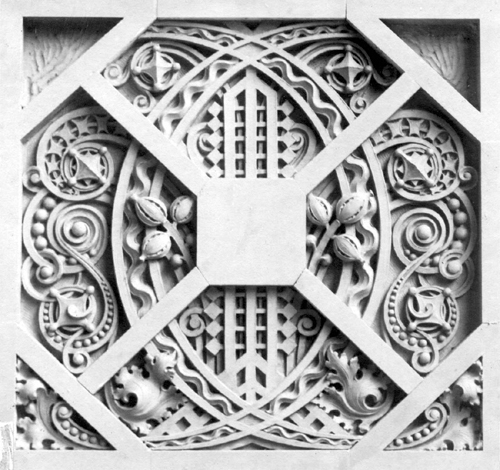
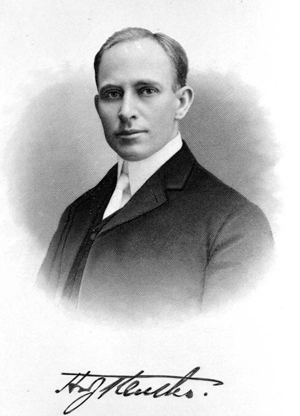 To many scholars, it seems an anomaly that there should be ANY Prairie School buildings in Jacksonville, a minor metropolis in the sleepy South, far removed from the Midwestern center of this movement.
To many scholars, it seems an anomaly that there should be ANY Prairie School buildings in Jacksonville, a minor metropolis in the sleepy South, far removed from the Midwestern center of this movement.